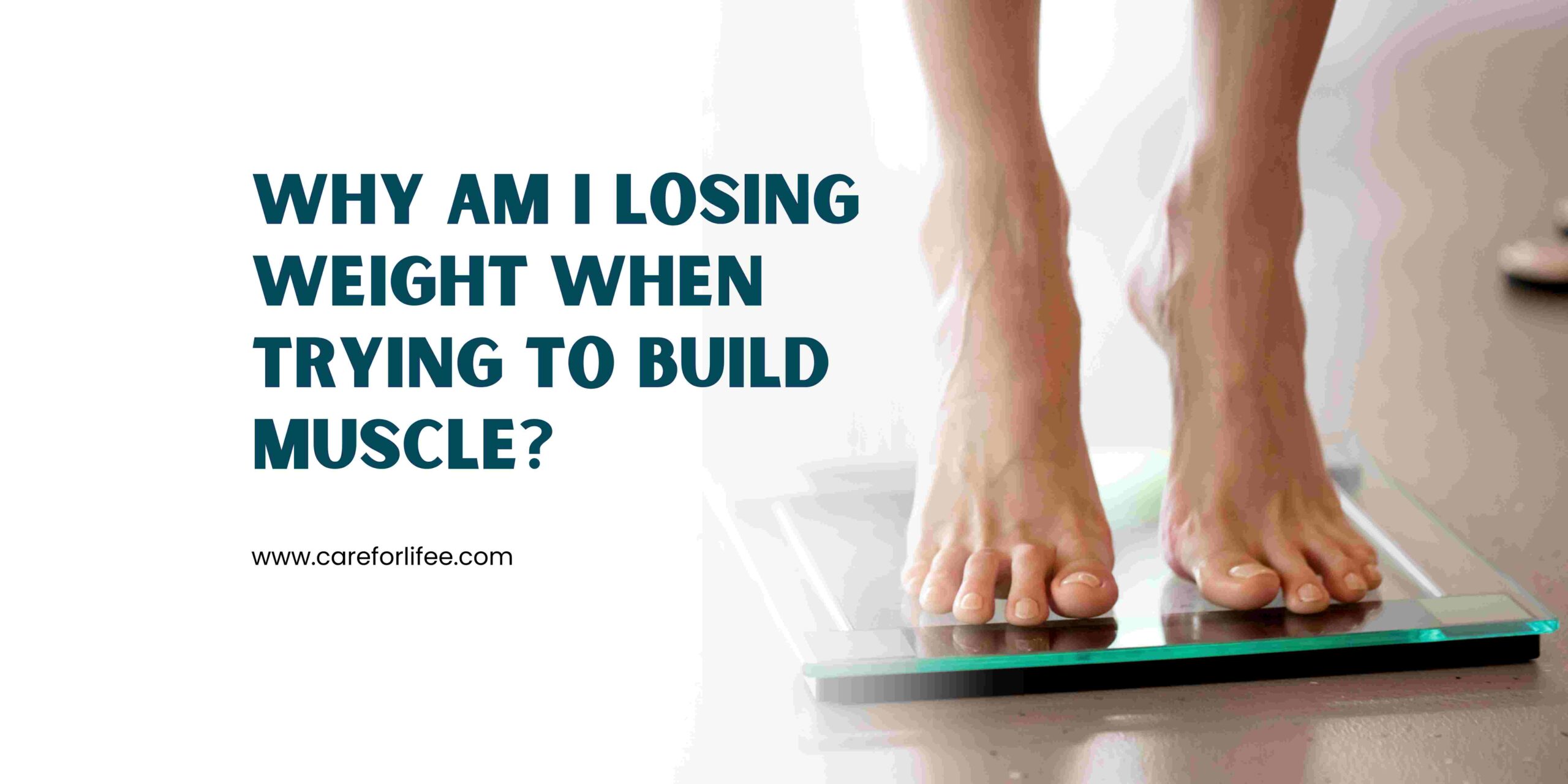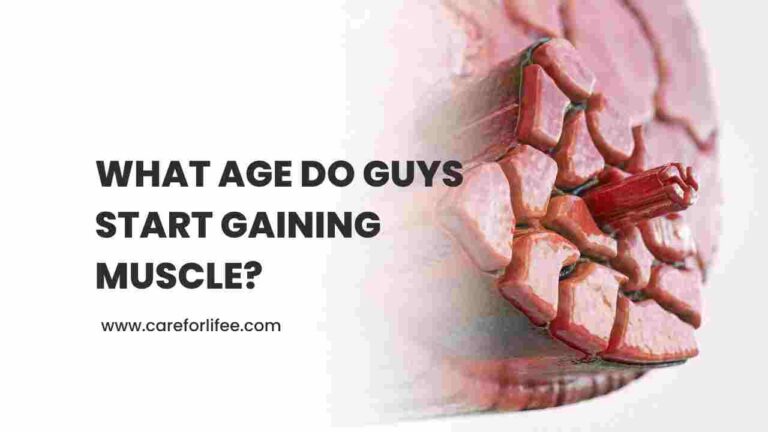Why am I Losing Weight When Trying to Build Muscle?
Building muscle is a common goal for many people, and while the process of building muscle involves exercise and a healthy diet, it is not uncommon for some individuals to experience weight loss while trying to build muscle.
This can be frustrating and confusing for those who are trying to gain weight and increase their muscle mass. In this article, we will explore the reasons why this happens and provide tips for building muscle while maintaining a healthy weight.
Understanding the Basics
Before delving into the reasons for weight loss while building muscle, it’s important to understand the basics of how the body builds muscle and loses weight. Building muscle requires a combination of resistance training and proper nutrition, specifically, an adequate amount of protein, carbohydrates, and fat to support muscle growth.
Losing weight, on the other hand, requires a calorie deficit, which means consuming fewer calories than the body needs to maintain its current weight.
Reasons for Losing Weight When Trying to Build Muscle
There are several reasons why individuals may experience weight loss while trying to build muscle.
Undereating
One common reason for weight loss while trying to build muscle is undereating. When the body is not consuming enough calories, it will not have the energy it needs to build muscle. This can also lead to muscle breakdown, as the body will turn to muscle tissue for energy.
Signs of undereating include feeling constantly fatigued, not making progress in the gym, and experiencing frequent hunger pangs. To adjust caloric intake to support muscle growth, individuals should calculate their daily caloric needs and consume a slight surplus of calories to promote muscle growth.
Overtraining
Overtraining is another reason why individuals may experience weight loss while trying to build muscle. Overtraining occurs when the body is not given enough time to recover between workouts, leading to decreased muscle growth and increased cortisol levels, which can lead to muscle breakdown.
Signs of overtraining include feeling constantly fatigued, experiencing muscle soreness that doesn’t go away, and a decrease in strength. To adjust workout intensity to support muscle growth, individuals should incorporate rest days into their workout routine and avoid working the same muscle group on consecutive days.
Not Getting Enough Protein
Protein is a crucial component for building muscle, and not getting enough protein can lead to muscle loss. The body needs a sufficient amount of protein to repair and rebuild muscle tissue that is damaged during exercise.
Signs of not getting enough protein include feeling constantly fatigued, not making progress in the gym, and experiencing frequent hunger pangs. To adjust protein intake to support muscle growth, individuals should aim to consume 1 gram of protein per pound of body weight per day.
Other Factors That Can Affect Weight Loss and Muscle Building
When trying to build muscle while maintaining a healthy weight, there are various factors that can affect weight loss and muscle gain besides undereating, overtraining, and not getting enough protein. It’s important to understand these factors and how they may be affecting your progress in the gym.
Sleep
Lack of sleep can have a significant impact on muscle growth and weight loss. During sleep, the body releases growth hormones, which are essential for muscle repair and recovery. When the body doesn’t get enough sleep, it produces more cortisol, a stress hormone that can lead to muscle breakdown. Therefore, it’s crucial to get enough sleep to support muscle growth and weight loss.
Stress
Chronic stress can also affect muscle growth and weight loss. When the body is under stress, it produces cortisol, which can lead to muscle breakdown. Additionally, stress can cause individuals to overeat, leading to weight gain. To mitigate the effects of stress on muscle growth and weight loss, it’s important to manage stress levels through practices like meditation, deep breathing, and exercise.
Hormones
Hormones play a critical role in muscle growth and weight loss. Imbalances in hormones like testosterone and cortisol can affect muscle growth and lead to weight gain. For example, low testosterone levels can lead to muscle loss, while high cortisol levels can lead to muscle breakdown. Therefore, it’s important to maintain a healthy balance of hormones to support muscle growth and weight loss.
Genetics
Genetics can play a significant role in how quickly an individual can build muscle and lose weight. Some people may naturally have a faster metabolism or a higher percentage of fast-twitch muscle fibers, which can affect their ability to build muscle and lose weight. While genetics can’t be changed, individuals can still work towards building muscle and losing weight by focusing on proper nutrition, exercise, and rest.
Medical Conditions
Certain medical conditions can affect weight and muscle gain. For example, thyroid disorders can lead to weight gain, while autoimmune diseases can affect muscle growth. If you suspect that a medical condition is affecting your ability to build muscle and lose weight, it’s important to speak with a healthcare professional to receive proper treatment.
Tips for Building Muscle While Maintaining a Healthy Weight
Building muscle while maintaining a healthy weight requires a combination of proper nutrition, exercise, and rest. Here are some tips to help you build muscle and maintain a healthy weight:
A. Determine Your Caloric Needs
Calculating your daily caloric needs is the first step in building muscle while maintaining a healthy weight. Consuming a slight surplus of calories will provide the body with the energy it needs to build muscle. The number of calories required will depend on factors such as age, gender, height, weight, and activity level. You can use online calculators or seek the guidance of a registered dietitian to determine your daily caloric needs.
B. Monitor Your Macronutrient Intake
In addition to consuming the right amount of calories, it’s also essential to monitor your macronutrient intake. Protein, carbohydrates, and fats are all essential for building muscle. As previously mentioned, aim to consume at least 1 gram of protein per pound of body weight per day to support muscle growth. Additionally, carbohydrates provide energy for workouts, while fats support hormone production and brain function.
C. Incorporate Resistance Training into Your Workout Routine
Resistance training is essential for building muscle. Resistance exercises should target all major muscle groups and be performed with progressively increasing intensity and weight to stimulate muscle growth. Compound exercises like squats, deadlifts, and bench presses are excellent for targeting multiple muscle groups and promoting overall strength.
D. Prioritize Recovery
Proper recovery is essential for muscle growth. Recovery includes getting enough rest between workouts, adequate sleep, and proper nutrition. Muscles grow and repair during periods of rest, so make sure to incorporate rest days into your workout routine. Aim for 7-9 hours of sleep per night to promote muscle repair and recovery.
E. Get Enough Sleep
As mentioned above, getting enough sleep is essential for muscle growth and recovery. During sleep, the body releases growth hormones that are essential for muscle repair and recovery. Lack of sleep can lead to increased cortisol levels, which can lead to muscle breakdown. Therefore, make sure to prioritize getting enough sleep to support muscle growth.
F. Manage Stress
Chronic stress can affect muscle growth and weight loss. When the body is under stress, it produces cortisol, which can lead to muscle breakdown. Additionally, stress can cause individuals to overeat, leading to weight gain. Therefore, managing stress levels through practices like meditation, deep breathing, and exercise is important for muscle growth and maintaining a healthy weight.
G. Seek Medical Advice if Necessary
If you suspect that a medical condition is affecting your ability to build muscle and lose weight, it’s important to speak with a healthcare professional to receive proper treatment. Certain medical conditions like thyroid disorders can lead to weight gain, while autoimmune diseases can affect muscle growth.







